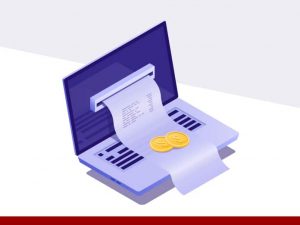There is great demand for data scientists today. The average salary of a US data scientist is projected to cross 113,000 dollars a year by 2022. Hence learning data science can open avenues in this lucrative sector.
But even if you do not want to become a data scientist, you may get great rewards in your current profession by learning data skills and boosting your data literacy. Also, employees with data knowledge can help their company make more data-driven decisions in practically every industry.
Explore the best top-class Data Science program from a world-class university at your fingertips. You can choose to start many degrees with courses or specializations now. If you are learning data science online, it is vital to comprehend what you are doing and have enough practice utilizing data science to deal with specific difficulties.
So how do you begin to learn data science? The response to this question tends to be a long list of courses to take and books to read, starting with linear algebra or statistics.
What is Data Science?
The field of study involves extracting insights from a massive amount of data using different scientific approaches, algorithms, and procedures. Data Science has evolved because of the development of quantitative stats, data analysis, and big data.
How to Start Learning Data Science?
It isn’t easy to learn data science, and it needs some patience and time. Maybe this profession is not the right fit for you if you cannot agree with this fact. But if you’re all right with the hard way to learn data science, choosing a few-month learning path is among your best long-term investments.
Step 1: Learn to Love Data
Nobody ever speaks about motivation in learning. Data science generally is a vast and fuzzy field, making it difficult to learn. It is very tough. You will stop halfway through without motivation, and you don’t think you can. If it happens, it’s not your fault – it’s the learning. It would help if you had something that will motivate you to keep learning.
Motivation is needed. Something that you can prevent from avoiding the question is “What do I learn next?”. You can utilize this to guide your learning not as an inspiring quotation but in the form of a passion project.
Step 2: Plan What You Should Learn
As data science is a vast field, many people would tell you that you cannot become a Data Scientist until you master the following: statistics, linear algebra, mathematics, programming, databases, distributed computers, machine learning, visualization, experimental design, clusters, and deep understanding. Simply that isn’t true.
This workflow does not involve advanced mathematics, deep learning knowledge, or any of the above-mentioned skills. But an understanding of the programming language and the ability to operate in this language with data are necessary.
Step 3: Learn Python
It would help if you mastered the programming language in the following phase in data science (i.e., Python). Because of its simplicity, versatility, and pre-equipment with powerful libraries (such as NumPy, SciPy, and Pandas), Python is the most frequent scripting language used by most data scientists that is beneficial in data analysis and other elements of data science. Python offers several libraries and is an open-source language.
Step 4: Learn Visualization, Manipulation, and Data Analysis with Pandas
It is necessary to learn how to utilize the pandas’ library to work with data in Python. Pandas provide a very high performance (named “DataFrame”) data structure suited as an Excel spreadsheet or SQL table for tabular data containing columns of diverse types.
It provides tools to read and write data, process missing data, filter data, clean untidy data, merge datasets, visualizes data, and many more. In summary, knowing pandas will boost your efficiency significantly during data analysis.
Step 5: Learn from Your Peers
How much you can learn from working with others is incredible. Teamwork can be highly crucial in data science in a job environment. Data scientists are generally part of a team. Data scientists in smaller companies usually work with other teams within their companies to solve specific issues.
A data scientist rarely moves from one team to another while working to solve data problems for various firm areas, so working together can be more crucial for data scientists than virtually everyone else!
Step 6: Know Machine Learning & Deep Learning
The key skill needed to be a data scientist is machine learning. Large companies use machine learning to develop different predictive models, categorization models, and so forth to optimize the planning according to the forecasts.
Deep learning is the sophisticated version of machine learning that uses neural networks. On the other hand, it is a framework that combines numerous algorithms to solve various tasks to train data.
Step 7: Keep Learning and Practicing.
Here’s the most excellent advice to improve your knowledge of data science:
- Find what motivates you to do.
- Learn more about what you have learned.
- Practice it.
These may include personal data science projects, online courses, books, blog reading, attending meetings or conferences, or anything else!
Step 8: Learn to Communicate Insights
The outcomes of their analysis must always be communicated to others by data scientists. It can be the difference between becoming a good and a great data scientist. The data analysis usually convinces others in your firm to act on what you have uncovered, including learning to communicate information.
The Bottom Line
The topic of data science is broad, intriguing, and exciting to study and be involved in. You will need much expertise and a wide range of knowledge to become a data scientist whom enterprises can hire.
Your adventure into data science has just started! There is so much to learn in the discipline of data science that you can master it for more than a lifetime. Remember, for breaking into a data science career, you don’t have to master everything.
You only need to start! If you are learning data science online, you must understand what you do and know how to use data science to solve specific problems.







